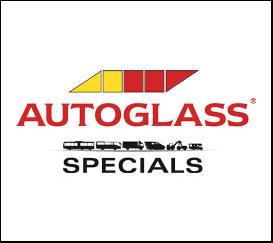Geen MOT met Autoglass (UK)
 Advertising Standards Authority (UK) 9 februari 2010, Complaint Ref 137460 (Autoglass).
Advertising Standards Authority (UK) 9 februari 2010, Complaint Ref 137460 (Autoglass).
Reclamerecht. Buitenland. Verenigd Koninkrijk. Advertising Standards Authority. Misleidende mededeling, staving van bewijs (substantiation) en eigenschappen (qualification).
Advertentie: radio en tv. Volgens klager (concurrent Glass Doctors) misleid de advertentie door te stellen dat een sterretje ervoor zorgt dat je niet door de APK-keuring heenkomt (MOT, in het Verenigd Koninkrijk). Daarbij lijkt het alsof adverteerder iedere ster weet te verhelpen, echter als de ster te groot is (om door de APK heen te kunnen komen) wordt deze niet door adverteerder gerepareerd. Misleidend dus...
a. The radio ad stated, "There are lots of reasons why a chipped windscreen could ruin your day ... a customer last week had left a little chip because he thought nothing of it, but when he put his car in for his MOT; fail. That little chip stopped the car passing ... He called Autoglass directly and I went out and repaired the chip ... He still had to waste more time and money retesting his car but at least he now knows to call the experts at Autoglass the moment he sees a chip ... Don't let a chip cost you your MOT".
b. The TV ad stated, "If there's a chip on your windscreen, it could be the difference between your car passing its MOT and failing. Why risk that hassle and expense? Call the experts at Autoglass directly and we’ll normally repair the chip without replacing the screen ... Don't risk failing your MOT. Call Autoglass". The ad depicted a car, which had a chip on the windscreen on the driver's side, failing an MOT. Later an Autoglass repairer fixed a similar chip for a different customer. The repair demonstration showed the chip being covered in a gel-like substance and then appearing to disappear.
De radioreclame wordt door de ASA als misleidend beoordeeld.
Hoewel heel gelijkend, de tv-reclame echter niet...
Assessment
1. Upheld
The ASA noted Autoglass complied with the British Standard and, as a consequence, if a chip was large enough to result in MOT failure, they would not repair it. Notwithstanding their argument that it might be in motorists own best interest to have damage inspected prior to an MOT test, we considered that listeners would infer from the ad that Autoglass repaired chips that had caused MOT failure. Because we understood this was not the case, we concluded that the ad was misleading.On this point ad (a) breached BCAP Code rules 3.1 and 3.2 (Misleading advertising), 3.9 (Substantiation) and 3.10 (Qualification).
2. Not upheld
We noted ad (b) stated Autoglass would "normally" repair glass damage and considered viewers would not infer from the claim that Autoglass would always repair damage in all circumstances. We acknowledged the British Standard advised against repair in some circumstances. We noted it was Autoglass policy to follow the recommendations of the British Standard. We also noted the spreadsheet submitted by Autoglass showed that in the majority of cases when they classified a job as glass repair work, this was the action they took. Although we noted a small percentage of glass repair jobs were later converted to windscreen replacement jobs, we also noted a small percentage of jobs were converted in the opposite direction. Because it was Autoglass policy to repair glass damage within the recommendations of the British Standard and we had seen evidence demonstrating this was their practice, we concluded that the ad was not misleading.On this point we investigated ad (b) under BCAP Code rules 3.1 and 3.2 (Misleading advertising), 3.9 (Substantiation) and 3.10 (Qualification) but did not find it in breach.
3. Not upheld
We noted ad (a) claimed a chipped windscreen "could ruin your day". We also noted ad (b) claimed "if" a windscreen was damaged, it "could" result in MOT failure. We concluded that both ads sought to alert motorists to the potential dangers of not having damage checked but neither ad implied that every chip would result in MOT failure.On this point we investigated ads (a) and (b) under BCAP Code rules 3.1 and 3.2 (Misleading advertising), 3.9 (Substantiation) and 3.10 (Qualification) but did not find either ad in breach.
Action
Ad (a) should not appear again in its current form. No further action necessary for ad (b).
Lees de uitspraak hier.
<!-- AddThis Button BEGIN --><div class="addthis_toolbox addthis_default_style"><a href="https://www.addthis.com/bookmark.php?v=250&username=xa-4cc58b813d6ef585" class="addthis_button_compact">SHARE</a><span class="addthis_separator">|</span> <a class="addthis_button_preferred_1"></a><a class="addthis_button_preferred_2"></a> <a class="addthis_button_preferred_3"></a><a class="addthis_button_preferred_4"></a> </div> <script type="text/javascript" src="https://s7.addthis.com/js/250/addthis_widget.js#username=xa-4cc58b813d6ef585"></script><!-- AddThis Button END -->









